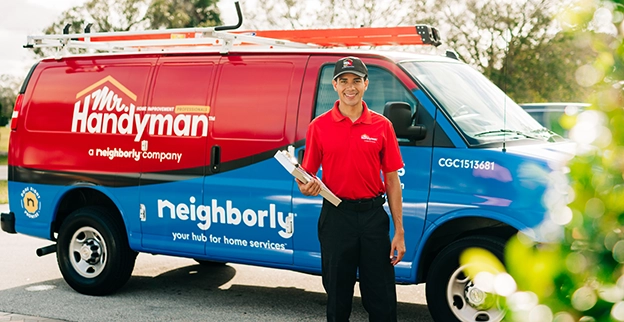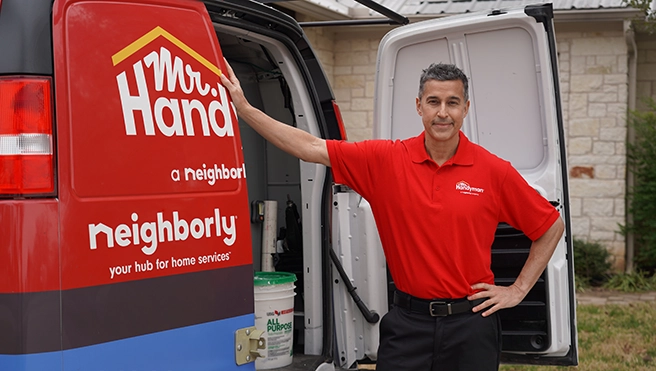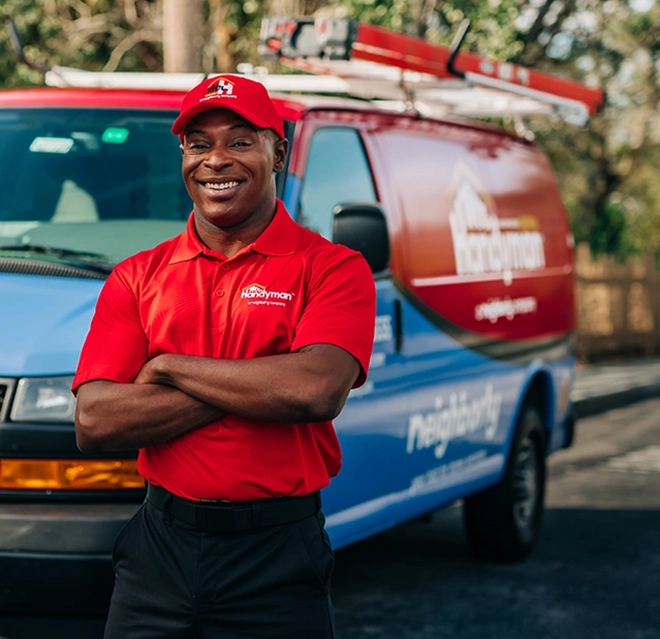Your home’s exterior goes through its fair share of wear and tear simply by being constantly exposed to the elements. Though South Carolina isn’t subject to the harsh winters that the more northerly states get, the high humidity and scorching summer sun can do a number on your home. While wood rot tends to be one of the more pressing concerns for Charleston homeowners due to the prevalence of moisture and termites, any metalwork on the outside of your home is also at risk of deteriorating. The culprit of this is namely the natural process of corrosion.
Explaining the process of corrosion in detail would require an article in and of itself, but for our purposes here, corrosion is simply a chemical reaction that occurs when iron atoms are exposed to water molecules and oxygen. The iron becomes ‘oxidized’ and produces rust.
Any metal you have outside of your home is at risk of corrosion due to the high moisture content in the oxygenated air. Metal products, like iron fences, are often treated with an anti-corrosion protective coating, but this coating may wear down over time—especially if damage by impact occurs. When rust spots are minor, they may be sanded down and a protective coating reapplied over top, but if left unaddressed, corrosion may lead to breakage. Repairing broken metal often requires part replacement and welding services.
If welding was done incorrectly in the first place, breakage may also occur without the presence of rust. For furniture, fixtures, and appliances located indoors in a temperature-controlled environment, shoddy workmanship is often to blame.
Whether you require a welder in Charleston, SC to repair corroded iron on the outside of your home or need to rejoin two or more aluminum components in your home’s interior, our handyman experts can get the job done right.
We Have Your Charleston Welding Needs Covered
Of the many signs you need fence repair, corrosion on a fence is one of the most common. Iron gates and fencing are popular alternatives to wooden fences due to their perceived durability and classical, ornamental style. Metal fences and gates are statement pieces that add style and charm to your Charleston property and as such, should be protected and maintained. Instead of replacing your stunning iron fence with a new composite or vinyl one, our welders in Charleston, SC can make repairs and minor replacements to your fence to get it back in great shape. Repair is also a much more affordable option than total fence replacement.
We can weld a wide range of metal products in and around your home. Repairs to fences, gates, decks, porches, railings, doors and stairs are the most common welding requests we receive, but if it’s made of metal components, there’s a good chance that we can fix it. Our handyman professionals have enough experience and knowledge of welding practices and procedures to come up with creative solutions for custom welding projects. They’ll use a combination of manual tools such as a tape measure and sander, as well as gas welding equipment such as a welder and welding gun.
How Welding Works
At its most basic, the process of welding involves joining two metal components together by heating the material to its melting point and then letting it cool until it’s solid again.
There is a wide variety of welding services and methods performed by welders in South Carolina:
- Stick welding. Electricity is used to melt an electrode—commonly referred to as a rod or stick—and the metal joint at the same time. Together, these molten metals form a filler that is used to seal the joint.
- MIG (metal inert gas) welding. Similar to stick welding, but instead of a rod, a spool of wire is used. It should not be used in outdoor applications due to wind issues.
- TIG (tungsten inert gas) welding. Good for welding projects that require precision, this method does not require an electrode or filler.
- Plasma arc welding. Like TIG welding, this method does not require a filler and the electrode is not consumed (melted). It works very similarly to TIG welding but is quicker.
- Electron beam welding. A stream of electrons is shot at the surface, causing it to melt.
- Laser welding. Like electron welding, but a stream of photons causes the surface to melt instead.
Stick, MIG, and TIG welding are most commonly used for simple household and commercial applications that do not require as much precision as may be needed in an industrial welding and manufacturing setting. Regardless of the method your handyman expert chooses for your project, you can rest assured that the method will be suitable for your needs and goals.
How To Prevent Needing A Charleston Welding Service In The Future
Though we love helping our customers out with their home repair, preventive maintenance, and installation needs, we also don’t want our customers to have to keep coming back to get repairs for the same issue. While preventing corrosion entirely is difficult to do at times, there are some steps you can take to reduce the likelihood of this occurring and keep your structures in good condition for years to come. Our best tips for preventing corrosion and rust include:
- Using a metal alloy. Stainless steel is made up of not just steel, but elements such as chromium and carbon, making it an alloy. Adding these elements discourages corrosion, making it a great choice for use around the exterior of your home.
- Galvanizing metal. Applying a coat of zinc to iron and steel will significantly slow down the process of corrosion.
- Applying oils and paints. The key to preventing corrosion lies in reducing moisture. Simply applying a coat of oils or paint to your fixtures regularly will create a barrier between the metal and oxygen and water.
- Regularly cleaning. Once per year, spray down your outdoor fixtures with water and a biodegradable liquid detergent. Rinse the detergent off and allow it to dry in the sun.


